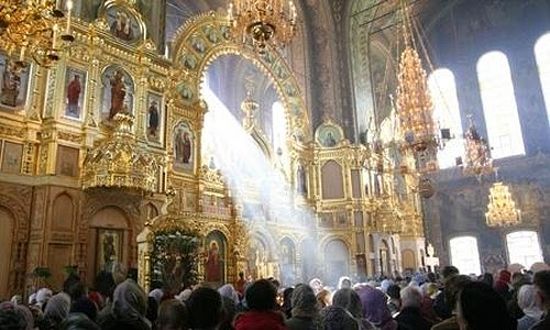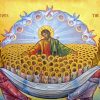Today we face much cultural turmoil and seemingly unreconcilable differences. Our discourse often becomes harsh and even hate filled. It seems we have lost a Christ centeredness in our lives. We seem to be trying to solve our cultural value issues thinking we can change it through political ends. We use social media to spew out our differing opinions thinking that this will make a difference. But history clearly tells us changing a culture is not so easily done.
Is it possible that Christians today have taken the wrong track in putting their energies into political action and social media? When we engage in these arenas don’t we become one with the culture we don’t like. Do we act in a way that exhibits the life and teachings of our Savior? Our actions do not communicate an alternative to the present potpourri of ideas and values. Sociologist James Davidson Hunter demonstrates that political action has never been the cause of cultural shifts even though some good things can happen in this way. More often it leads to oppression of minority views, more division and greater discord. If we truly want to bring Christ back to the center of our lives, a different approach is necessary.
We are creatures of God called to something much higher than life in this world, the Kingdom of Heaven. To reach this kingdom, Scripture makes it clear, we must become continually better at living like Jesus Christ and become an active participant in a true compassionate faith community. To achieve our God given calling and make a difference in this world, our lived life in our faith community must be different from the general society.
This view is clearly spelled out by the acclaimed sociologist Dr James Davison Hunter in his book, To Change The World: The Irony, Tragedy, and Possibility of Christianity in the Late Modern World. I suggest you read it.
He writes,
“Contemporary Christian understandings of power and politics are a very large part of what has made contemporary Christianity in America appalling, irrelevant, and ineffective—part and parcel of the worst elements of our late-modern culture today, rather than a healthy alternative to it.” Pg 94
“The Son can do nothing of his own accord, but only what He sees the Father doing. For whatever the Father does, that the Son does likewise. . . . I can do nothing on my own. . . . I seek not my own will but the will of him who sent me” (John 5: 19, 30)
“Even the Son of Man came not to be served but to serve, and to give his life as a ransom for many” (Mark 10: 45)
“Do not resist an evil person. If someone strikes you on the right cheek, turn to him the other also.” And also, “love your enemies and pray for those who persecute you” (Matt. 5: 39, 44).
To be “filled with the knowledge of his will in all spiritual wisdom and understanding, so as to walk in a manner worthy of the Lord, fully pleasing to him, bearing fruit in every good work and increasing in the knowledge of God” (Col. 1: 9–10).
This way of life is known to be a struggle, requiring preparation, training, ascesis, and the gift of the Holy Spirit. This is the needed role of the Church.
When we examine how the early church grew and shaped a new culture over many years, we find that Christians lived a life based on the way Christ lived. They were different in how they lived. Many even sacrificed their life to stay true to their faith. It was their faithfulness to His way, His teachings, and their exemplary love for all humankind that made them different. They lived in a very difficult time that was in great odds with Christian teachings. Even so, they did not seek to overthrow or change the government, but lived by the Spirit, as Saint Paul says. They understood that the kingdom sought was not of the world but of the Kingdom of Heaven. They trusted in God and relied on the work of the Holy Spirit. They were faithful in all things. Their efforts were aimed at becoming like Christ, humble, obedient to His teachings, compassionate, accepting that we are all sinners knowing we are all made in God’s image.
Isn’t this is what we as Christians must now do? First, we must understand the limits of our current condition and accept the reality that our current Christian institutions, our leaders and members, and most importantly, ourselves, do not model the life and teachings of Christ. Thus we are powerless. Filled with pride, we only profess Christian ideals and try to impose morality on others through political actions and social media. Sometimes we even forget the commandment to love our neighbors, even our enemies, finding ourselves rejecting or condemning others because they are different. We must learn to live with love in a world with a plurality of values and ideas while holding true to those Christ teaches us.
I do not think it is likely that the current state of Christianity will ever bring about societal change. Our churches can best focus on spiritual development of its members, helping them to gain the power of the Holy Spirit, to become mystically united with God, to unite their will with the will of God, and live in love and humility.
This is the teaching of the Orthodox Church, the way of life it prescribes and nurtures. The Church is a place for spiritual healing, it’s the loving body of Christ, a place where we can surrender to His teachings and be guided to a way of life that is filled with love of all mankind. So what are a few of the key elements in this Orthodox way of life?
1. Praying Daily: Have a regular prayer rule that includes morning and evening prayer.
2. Worshiping and Participating in the Sacraments: Attend and participate in the Divine Liturgy receiving Holy Communion regularly as well as regular participation in Confession.
3. Honoring the Liturgical Cycle: Follow the seasons of the church and participate in the fasts and feasts of the Church.
4. Using the Jesus Prayer: Repeat the Holy name whenever possible throughout the day or night.
5. Slowing Down and Ordering Your Life: Set priorities and reduce the stress and friction caused by a hurried life.
6. Being Watchful: Give full attention to what you are doing at the moment.
7. Taming the Passions: Overcome your habits, attachment to your likes and dislikes, and learn to practice the virtues.
8. Putting Others First: Free yourself from your selfishness and find joy in helping others.
9. Spiritual Fellowship: Spend time regularly with other Orthodox Christians for support and inspiration.
10. Reading Scripture and writings of the Church fathers.
Practicing these basic elements will lead to continual spiritual formation, a deeper and deeper faith, and a change in our way of life when practiced as a member of a church community under the guidance of a spiritual father. It is a life that begins with faith and nurtured by repentance and cooperation with grace. It demands humility and an open heart for God’s love to permeate.
James Davidson Hunter writes in his book,
The task for the church and all Christians—in every generation is to “seek first the Kingdom of God and His righteousness”; to seek to integrate the very order of the heavens within our personal lives and relationships, our families, our work and leisure, and our communities. God’s Kingdom, of course, is not political in character but spiritual, moral, relational, vocational, and environmental (including the social milieu). P 268.
Christians, like most modern people, have politicized every aspect of public life and private life as well—from church/ state issues, education, the media, entertainment and the arts, and the environment to family values, sexuality, and parenting. In this, they mistakenly imagine that to pass a referendum, elect a candidate, pass a law, or change a policy is to change culture.
In so doing, Christians undermine the message of the very gospel they cherish and desire to advance. P275
Christians must cultivate tension with the world by affirming the centrality of the church itself and the parish or local congregation in particular.
James Davidson Hunter
Reference: Dr James Davison Hunter, To Change The World: The Irony, Tragedy, and Possibility of Christianity in the Late Modern World.
















